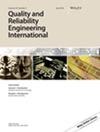评估维护工人在大修、停工、停产或周转期间(MoOSTs)对安全环境的看法
IF 2.8
3区 工程技术
Q3 ENGINEERING, INDUSTRIAL
引用次数: 0
摘要
维护活动用于维持有形工业资产的可靠性。然而,研究表明,一些最具破坏性的工业事故是由于维护工人的安全意识薄弱造成的,尤其是在大修、停工、停产或转产(MoOSTs)期间。典型的大修、停工、停产或转产涉及到大规模定期维护工作的协调,这反过来又增加了事故风险和成本。此外,停机检修的持续时间很短,因此需要不同的组织机构同时开展高风险活动,而这些组织机构对安全有不同的认识,并拥有不同的安全文化。对安全氛围的了解可以提高对缓解工作场所事故的态度和观念的认识,从而使社会变革管理组织受益匪浅。本研究旨在建立安全氛围,以促进安全文化,并对社会变革管理计划期间的安全绩效产生积极影响。对尼日利亚主要水泥厂的 MoOSTs 工人进行了安全氛围问卷调查。通过探索性因素分析,确定了三个基本的安全氛围因素,有助于确定 "培训和事故学习"、"高级管理层对确保安全及其规程制定过程的承诺 "和 "MoOSTs 期间事故报告系统的有效性 "等因素是工人对安全绩效看法的重要预测因素。研究结果还指出,安全绩效感知、社会变革管理计划安全培训和组织承诺之间的相互关系呈正相关。本文章由计算机程序翻译,如有差异,请以英文原文为准。
Assessment of safety climate perception of maintenance workers during major overhauls, outages, shutdowns or turnarounds (MoOSTs)
Maintenance activities are used to sustain the reliability of physical industrial assets. However, studies indicate that some of the most devastating industrial accidents are attributable to poor safety perceptions of maintenance workers, especially during major overhauls, outages, shutdowns or turnarounds (MoOSTs). Typical MoOSTs involve the harmonisation of regular maintenance endeavours on a large scale, which in turn heighten risks of accidents and costs. Furthermore, MoOSTs are performed over short durations thereby necessitating parallel high‐risk activities by different organisations that have different perceptions of safety and possess different safety cultures. Understanding safety climate can immensely benefit MoOSTs organisations by improving the understanding of attitudes and perceptions that alleviate workplace incidents. This study aimed to establish safety climate that would boost safety culture and positively impact perceived safety performance during MoOSTs. Safety climate questionnaire survey was deployed to MoOSTs workers of leading cement plants in Nigeria. Through exploratory factor analysis, three underlying safety climate factors were identified, which helped to determine that factors such as ‛training and learning from incidents’, ‛commitment of senior management towards ensuring safety and its protocol development process’ and ‛effectiveness of incident reporting systems during MoOSTs’ were significant predictors of workers’ perceptions of safety performance. The findings also pointed out that the inter‐relationship between perceived safety performance, MoOSTs safety training and organisational commitment were positively correlated.
求助全文
通过发布文献求助,成功后即可免费获取论文全文。
去求助
来源期刊
CiteScore
4.90
自引率
21.70%
发文量
181
审稿时长
6 months
期刊介绍:
Quality and Reliability Engineering International is a journal devoted to practical engineering aspects of quality and reliability. A refereed technical journal published eight times per year, it covers the development and practical application of existing theoretical methods, research and industrial practices. Articles in the journal will be concerned with case studies, tutorial-type reviews and also with applications of new or well-known theory to the solution of actual quality and reliability problems in engineering.
Papers describing the use of mathematical and statistical tools to solve real life industrial problems are encouraged, provided that the emphasis is placed on practical applications and demonstrated case studies.
The scope of the journal is intended to include components, physics of failure, equipment and systems from the fields of electronic, electrical, mechanical and systems engineering. The areas of communications, aerospace, automotive, railways, shipboard equipment, control engineering and consumer products are all covered by the journal.
Quality and reliability of hardware as well as software are covered. Papers on software engineering and its impact on product quality and reliability are encouraged. The journal will also cover the management of quality and reliability in the engineering industry.
Special issues on a variety of key topics are published every year and contribute to the enhancement of Quality and Reliability Engineering International as a major reference in its field.

 求助内容:
求助内容: 应助结果提醒方式:
应助结果提醒方式:


